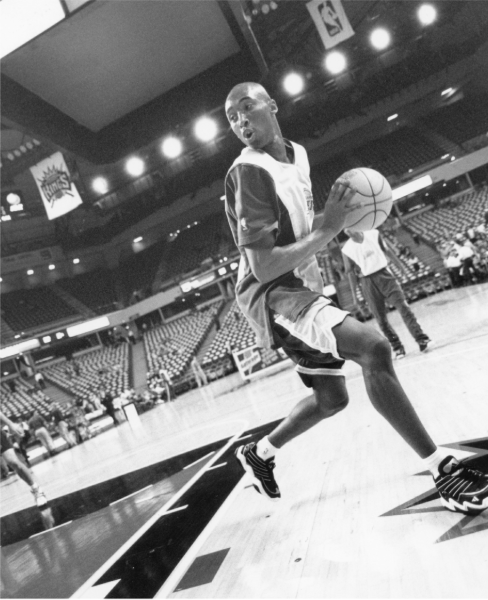Think Like Kobe: The Philosophy Behind the Mamba Mentality

I remember when I was younger, we used to roll sheets of paper from our notebooks into a ball and yell out “Kobe!” as we threw it into a trash can. I think that was my first introduction to Kobe. I've always liked basketball—growing up, you always watched it with your family. I know almost everyone has had the dream of playing in the NBA someday when they were kids.
Before Kobe’s passing, he left a philosophy and blueprint for the world on how he became the player we all know today. In his book, The Mamba Mentality, he shows how you can become the best version of yourself. A lot of people think the Mamba Mentality is just about going hard, but it’s not really that. Let me walk you through some of the key ideas you can take and apply to whatever it is you do.
Think Long Term
When making decisions, think long term. When Kobe was developing his game, he didn’t care about missing shots, looking bad, or being embarrassed. It was because he knew everything he picked up was part of a learning process. It might take days, weeks, or even years, but he stayed focused on the bigger picture.
Get Your Hands on Everything and Ask Why
As a young kid, Kobe devoured films, watching everything he could, including footage of old NBA legends like Clyde Drexler, Magic Johnson, and Oscar Robertson. When watching, especially his own games, he focused not only on what happened but also on what should have happened. He let his imagination run wild, thinking of other moves he could use or analyzing why certain things worked and why others didn’t.
If You Want to Be Great, Pain and Suffering Are Inevitable
Kobe had something called midnight workouts. He would wake up at 5 a.m. because he believed starting the day early allowed him to train more. His schedule looked like this: he'd hit the gym from 5 a.m. to 7 a.m., again from 11 a.m. to 2 p.m., and once more from 6 p.m. to 8 p.m. Starting earlier gave him an extra workout each day. Those extra hours in the gym came at the cost of sleep, but it was a sacrifice he was willing to make.
Train Your Mind
Undoubtedly, the mind is the most important part of the human anatomy. Without it, we’d be walking around like zombies. Whatever you choose to do in life, pick up knowledge from your field, use it, and implement it. Focus on every daily detail. Be aware, practice, and then practice some more. By doing this, you not only stay present but also keep your mind from wandering.
Find Mentors and Ask a Ton of Questions
Kobe tells us to be curious. If you want to learn and improve, ask questions—lots of them. Whether he was with a coach, a future or current Hall of Famer, or even in a practice game, Kobe would ask question after question.
“I get embarrassed, but most people appreciate curiosity and passion. They also understand that I’m not afraid to ask and am genuinely thirsty to hear their answers and learn new info.” — Kobe Bryant
Just Show Up and Do It
Kobe never overthought his daily preparation. If he wanted to play, he knew this was what he had to do. He just showed up and did it. His routine was structured: lifting, training, recovery, and film study. It sounds like a lot, right? But he knew he had to do it to get better.

Surround Yourself with People Who Share Your Values
Surround yourself with people who share your values. When Kobe tweaked his ankle, Judy Seto, a physical trainer, was assigned to him. As they worked together, it became clear to Kobe that she was as obsessive about training and improvement as he was about basketball.
Reading Is Fundamental
One of the most interesting things about Kobe was his dedication to learning. For example, he made it a priority to read the referee’s handbook. He learned that each referee had a designated spot on the floor based on where the ball was in play. By studying this, he discovered "dead zones"—areas where referees couldn’t see certain things. He used this knowledge to his advantage, getting away with holds, travels, and other minor violations simply because he understood the officials’ limitations.
Reading is such an important skill, especially today when so few people do it. It can give you an edge most people don’t have.
Reading Kobe’s book gives you a behind-the-scenes look at his mindset and process when it came to basketball. One key takeaway is that Kobe never doubted himself. The reason? He always focused on getting better. His mind didn’t have time to entertain doubt.
I think many of us struggle with self-doubt because we don’t commit to improving. Being great at what you do is a choice. It’s okay if you don’t want to go through all the pain and suffering, but if you do, it’s going to take a lot of work, practice, and constant learning throughout your life.